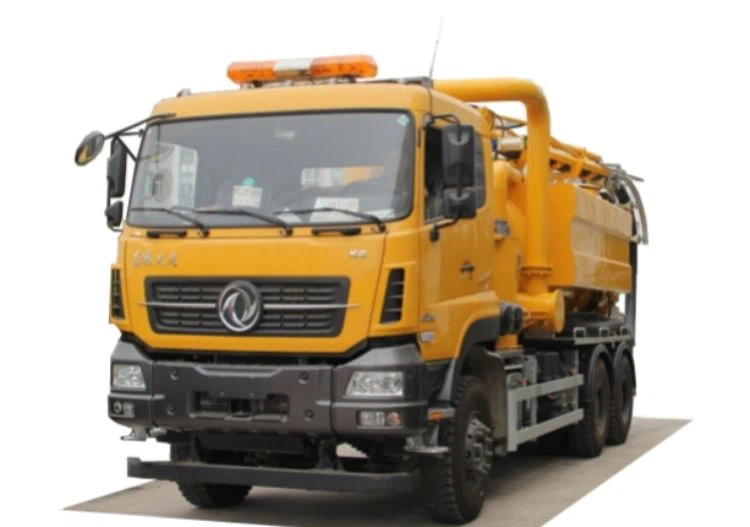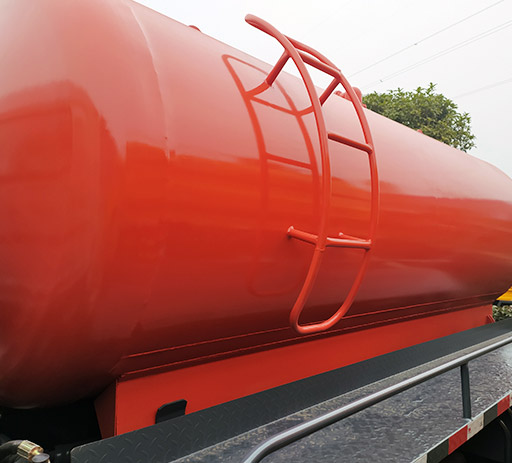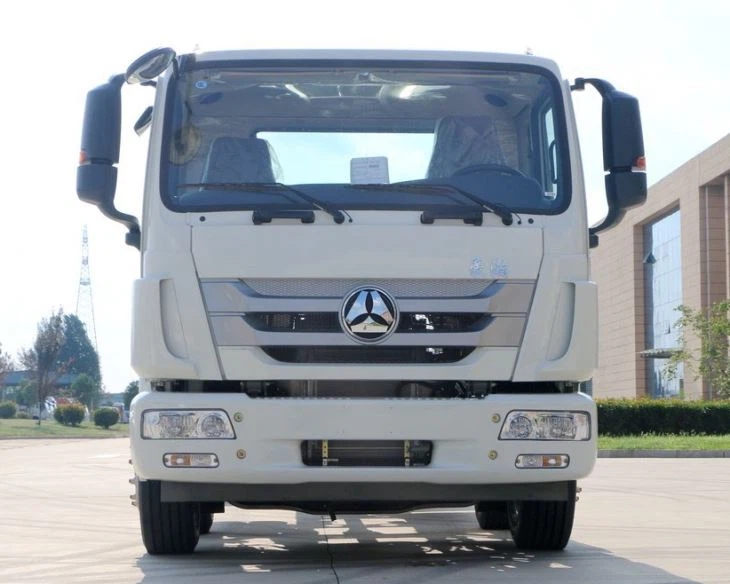Revolutionizing Waste Management: The Rise of Robot Trash Trucks

As urban areas continue to expand, the challenge of waste management becomes increasingly complex. Traditional methods are often inefficient and labor-intensive, leading to the need for innovative solutions. Enter the robotic trash truck—a groundbreaking technology set to transform how we handle waste. In this article, we will delve into what robot trash trucks are, their benefits, features, and how they are shaping the future of waste management.
What is a Robot Trash Truck?
A robot trash truck is an automated vehicle designed to collect, transport, and dispose of waste without human intervention. Equipped with advanced sensors, cameras, and artificial intelligence (AI), these trucks can navigate city streets, identify trash bins, and execute pickups efficiently.
How Do Robot Trash Trucks Work?
Robot trash trucks operate using a combination of technology to streamline the waste collection process. Here’s a detailed look at their operation:
- Sensors and Cameras: Robot trash trucks are equipped with various sensors and cameras that enable them to detect obstacles, assess their surroundings, and locate trash bins. This technology ensures safe and efficient navigation through busy streets.
- Artificial Intelligence: The AI algorithms in these trucks allow them to learn from their environment, making decisions about routing and pickup based on real-time traffic and waste collection data.
- Automated Collection Arms: The robotic arms can extend, grab, and lift bins autonomously, allowing for efficient unloading of waste into the truck without the need for human operators.
Benefits of Robot Trash Trucks
Adopting robot trash trucks offers a plethora of benefits for municipalities, waste management companies, and the environment alike. Some of the key advantages include:
1. Efficiency and Cost-Effectiveness
Robot trash trucks can operate continuously with minimal downtime. Automated systems can significantly reduce labor costs as fewer human operators are needed for collection routes. This efficiency can lead to reduced operational expenses for waste management services.
2. Environmental Impact
These automated trucks can optimize routes to decrease fuel consumption and emissions. By minimizing the distance traveled for waste collection, robot trash trucks contribute to a reduction in greenhouse gases and overall environmental impact.
3. Safety
With less human involvement in potentially hazardous waste collection tasks, robot trash trucks enhance safety for workers. The automation reduces the risk of accidents in busy urban environments.
4. Enhanced Data Collection
Robot trash trucks can gather valuable data regarding waste generation and patterns in urban settings. This information can help cities plan more effective waste management strategies and improve recycling rates.
Case Study: San Francisco’s Automated Waste Collection
San Francisco has piloted a program focusing on robotic waste collection, leading to a 20% reduction in collection times and increasing overall efficiency. The city plans to expand this program to address the challenges of managing its growing waste burden.
Features of Modern Robot Trash Trucks
The technology behind robot trash trucks is rapidly evolving, incorporating various features that enhance their performance. Here are some key features of modern robot trash trucks:
1. Real-Time Navigation Systems
Advanced GPS and mapping technologies enable robot trash trucks to navigate complex urban environments efficiently. Real-time traffic data helps in adjusting routes dynamically for optimal performance.
2. Waste Identification Technologies
Using AI and machine learning, these trucks can identify different types of waste, distinguishing between recyclables, organic waste, and non-recyclable materials, thereby enhancing sorting efforts at the point of collection.
3. Communication Systems
Robot trash trucks are equipped with communication systems to relay information back to waste management companies. This connectivity allows for better management of fleet operations and maintenance schedules.
Challenges and Limitations

Despite their potential, robot trash trucks face several challenges that need to be addressed for widespread adoption:
1. High Initial Investment
The cost of developing and deploying robot trash trucks can be substantial. Municipalities may face budget constraints that limit their ability to invest in automated solutions.
2. Technology Reliability
As with any technology, reliability remains a concern. Ensuring that these trucks function correctly in diverse weather conditions and busy city environments is crucial for their success.
3. Public Acceptance
Some community members may be hesitant to accept the idea of robots collecting waste. Educating the public about the safety, efficiency, and environmental benefits of these innovations is essential.
Examples of Robot Trash Truck Implementations
Several cities around the globe are experimenting with or have already adopted robot trash truck technology:
1. Sweden’s Robotics Initiative
Sweden has introduced robot trash trucks in urban areas known for their efficiency. These vehicles not only collect waste but are also programmed for recycling initiatives.
2. China’s Smart City Projects
In cities like Beijing, robot trash trucks are part of a broader push towards “smart cities.” They work alongside other automated systems to streamline municipal services.
3. U.S. Pilot Programs
Several cities in the U.S., including Austin and Los Angeles, have begun pilot programs to test robot trash trucks, focusing on improving neighborhoods’ cleanliness and waste management efficiency.
Future of Robot Trash Trucks
The future of robot trash trucks looks promising as technology continues to advance. Future developments may include:
1. Enhanced AI Capabilities
Further advancements in AI will allow these trucks to learn from their experiences, improving route planning and waste identification over time.
2. Integration with Other Smart City Technologies
Robot trash trucks can be integrated with other smart technologies like traffic management systems, leading to more cohesive urban planning strategies.
3. Expanded Fleet Operations
As costs decrease and technology advances, we can expect more municipalities to adopt robot trash trucks, leading to a fleet of automated vehicles handling waste collection efficiently around the clock.
Tips for Local Governments Considering Robot Trash Trucks
For local governments contemplating the adoption of robot trash trucks, here are several practical tips to ensure successful implementation:
1. Conduct a Feasibility Study

Before investing in robotic technology, it is essential to understand the specific needs of the community and assess if robot trash trucks are a viable solution.
2. Involve the Community
Engaging the community early in the planning process can help alleviate concerns and foster acceptance of robot technology in waste management.
3. Partner with Technology Providers
Collaborating with existing technology providers who specialize in waste management solutions may streamline the integration of robot trash trucks into current operations.
FAQs About Robot Trash Trucks
1. Are robot trash trucks safe for use in urban areas?
Yes, robot trash trucks are designed with multiple safety features, including sensors to prevent collisions and technology to navigate around pedestrians and vehicles safely.
2. How much do robot trash trucks cost?
The initial investment in robot trash trucks can vary significantly, typically ranging from $250,000 to $1 million depending on the technology and customization of the truck.
3. Can robot trash trucks collect recycling and compostable materials?
Many robot trash trucks are equipped with advanced waste identification technology, allowing them to collect recyclables and compostable materials separately, enhancing sorting efficiency.
4. How does the operation of robot trash trucks reduce environmental impact?

By optimizing collection routes and minimizing fuel consumption, robot trash trucks can significantly lower greenhouse gas emissions compared to traditional waste management methods.
5. What are the main challenges affecting the widespread adoption of robot trash trucks?
Challenges include high initial investment costs, technology reliability, and public acceptance. Addressing these issues is crucial for broader implementation.
6. How can local government officials initiate the use of robot trash trucks in their communities?
Officials can start by conducting a feasibility study, engaging the community, and partnering with technology providers specializing in robotic waste management solutions.
